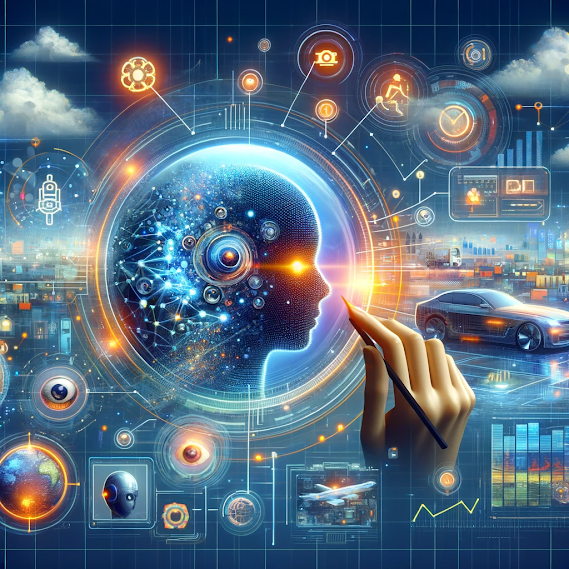Generative AI in Healthcare: A Revolution in Patient Care and Operational Efficiency
Generative AI in Healthcare: A Revolution in Patient Care and Operational Efficiency
With the advent of generative AI (Gen AI) technology, particularly with the introduction of GPT-4, is transforming the way care is delivered. At a significant event in Chicago, the healthcare community witnessed the potential of #GenAI to revolutionize clinician workflows by converting patient interactions into comprehensive clinician notes in mere seconds. This leap in technology marks a pivotal shift from the traditional, labor-intensive processes of note-taking and administrative tasks, steering towards a future where healthcare operations are significantly streamlined and enhanced.
Generative AI, with its foundation in deep-learning algorithms, is adept at creating new content from text to audio and more. Its ability to analyze unstructured data sets—those not organized in a predefined manner—is particularly transformative for the healthcare sector, which is inundated with such data in the form of clinical notes, diagnostic images, and medical charts. The application of Gen AI in healthcare is not just an incremental improvement but a groundbreaking step towards unlocking the industry’s $1 trillion improvement potential. By automating operational tasks, providing instant access to years of clinical data, and modernizing health systems' infrastructure, Gen AI is redefining the landscape of healthcare operations.
For healthcare systems and private payers, the journey towards integrating #GenAI into their existing frameworks comes with its challenges, chief among them being data security and the accuracy of AI-produced responses. The sensitivity of patient healthcare information and the critical nature of healthcare decisions necessitate a cautious approach, emphasizing the importance of human oversight in the application of Gen AI technologies.
The emerging use cases for Gen AI in healthcare, from clinician documentation to administrative operations, highlight a spectrum of possibilities that combine both excitement and caution from professionals in the field. Healthcare entities have been utilizing AI for various applications, such as predicting adverse events and optimizing operating-room schedules. However, #GenAI introduces an advanced toolset that leverages the abundant unstructured data within the healthcare sector, promising a significant leap towards operational efficiency and improved patient care.
To harness the full potential of #GenAI, healthcare executives are encouraged to thoughtfully consider its integration into their analytics and AI strategies, mindful of the inherent risks. The precision and sensitivity required in healthcare applications mean that Gen AI’s deployment must be carefully facilitated and monitored by healthcare professionals to ensure patient safety and care quality.
In the realm of private payers, #GenAI offers an avenue to enhance operations while delivering personalized and convenient services to patients. From simplifying the management of voluminous logs and data to improving member services through efficient information retrieval, Gen AI stands to streamline processes significantly. Moreover, it can expedite resolution of claims denials and streamline prior authorization and claims processing, translating to substantial cost and time savings.
Hospitals and physician groups also stand to benefit immensely from Gen AI’s capabilities. From reducing the administrative load that contributes to clinician burnout to enhancing clinical operations and patient care continuity, #GenAI can automate and optimize numerous aspects of healthcare delivery. Its ability to generate and synthesize language can improve the functionality and accuracy of Electronic Health Records (EHRs), furthering the efficiency of healthcare services.
As healthcare organizations navigate the incorporation of #GenAI into their operations, the focus initially may lean towards administrative and operational applications due to their feasibility and lower risk compared to clinical applications. However, as confidence and experience with the technology grow, its application is likely to expand into more clinical domains, potentially revolutionizing patient care and healthcare delivery.
The integration of Gen AI in healthcare heralds a new era of efficiency and innovation. While challenges and risks need to be navigated carefully, the transformative potential of #GenAI in healthcare is immense, promising not just to improve operational efficiency but to fundamentally enhance the quality of care delivered to patients. As the healthcare industry continues to evolve, #GenAI stands as a beacon of technological advancement, driving the sector towards unprecedented improvements in care delivery and operational excellence.
Read more about AI applications for business here.


.jpeg)


Comments
Post a Comment